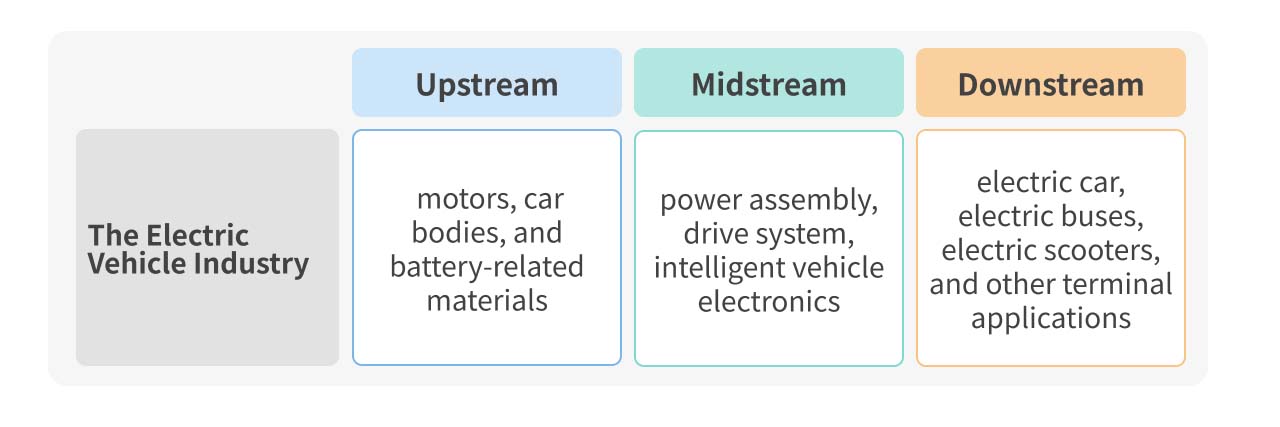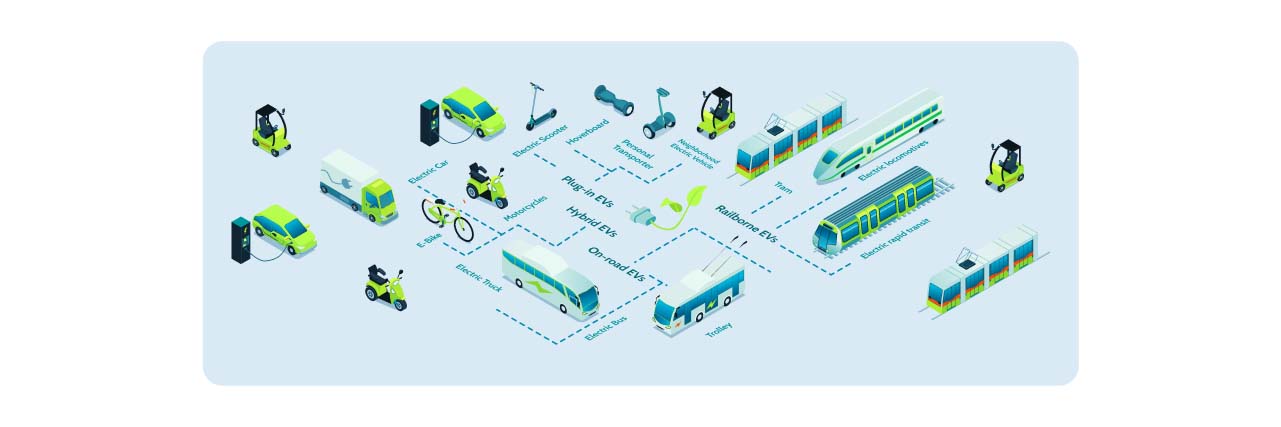Although buying a car can be quite expensive, you could consider investing in “electric vehicle concept stocks” instead! As Tesla (NASDAQ: TSLA) experiences stock price fluctuations, some of Taiwan's upstream and midstream suppliers in the industry chain are also attracting market attention. Are you curious about what materials and components these suppliers provide that enable electric vehicles to hit the road?

Electric Vehicle Materials Upstream& Midstream
1. Battery-related Materials
The upstream sector of the electric vehicle industry includes motors, car bodies, and especially battery-related materials. Battery materials are particularly critical and can be divided into four main categories: cathode materials, anode materials, separators, and electrolytes. Ions move between the cathode and anode materials, enabling the battery to charge and discharge. Separators prevent short circuits by isolating the cathode and anode, while electrolytes act as a channel for ion movement.
- Cathode Materials
Currently, lithium batteries are the primary type used in electric vehicles, and cathode materials significantly influence the cost and performance of these batteries. These materials include lithium cobalt oxide (LCO), nickel-cobalt-manganese (NCM), lithium manganese oxide (LMO), and lithium iron phosphate (LFP), each with its own advantages in energy density and structural stability. Different automakers use various types based on their needs. In the Taiwanese stock market, notable cathode material suppliers include Mechema (4721), Coremax (4739), Changs Ascending (8038), Advanced Lithium (5227). - Anode Materials, Separators, and Electrolytes
Anode materials mainly consist of carbon-based materials like artificial graphite or metal compounds like copper foil, with well-known companies such as Long Time Tech (6555), CSC's subsidiary China Steel Chemical (1723). Separator manufacturers include BenQ Materials (8215). For making conductive electrolytes, HOPAX (6509) is one of the leading player.
2. Components and Integrated Systems
Midstream products include power assemblies, drive systems, and intelligent vehicle electronics systems.
- Power Assembly
The power assembly integrates the vehicle's electrical system and battery components, with battery cells and battery packs being the most crucial. Taiwanese manufacturers are engaged in technology development and production in areas such as battery pack assembly and energy management. Notable companies include E-one Moli (3127), Amita (5233), Phoenix Silicon (8028). - Drive System
The drive system has become highly integrated in recent years, combining motor electronics, inverters, and reduction gears, along with thermal management systems. Relevant Taiwanese companies include Hota (1536), AcBel (6282), Taiwan-Asia Semiconductor (2340), along with component suppliers such as Actron (8255), Panjit (2481). - Intelligent Vehicle Electronics
The vehicle electronics system, often considered the heart of an electric vehicle, encompasses the main control computer, driver-assistance systems, and in-car entertainment systems. Taiwanese companies specializing in vehicle chip testing include Ardentec (3264), GEM (6525). For manufacturing in-car control computers, firms such as Hon Hai (2317), Compal (2324), Pegatron (4938), while touch panel suppliers include AUO (2409), Innolux (3481).
Electric Vehicle Manufacturers: Downstream

Besides electric cars, downstream products also include electric buses, electric scooters, and other terminal applications, so the scope isn't limited to international giants like Tesla and BYD (1211.HK). For example, Taiwan’s RAC Electric Vehicles (2237) is the largest electric bus manufacturer, and Hon Hai-Yulon joint venture Foxtron (2258) produces both civilian cars and public buses. These companies primarily focus on electric vehicle sales and exports in the Taiwanese stock market.
After today’s introduction, do you find yourself more interested in the electric vehicle industry? If so, consider tracking some of these suppliers or manufacturers’ stocks, or even purchasing electric vehicle ETFs.
If you are interested in green energy, check out our article:
